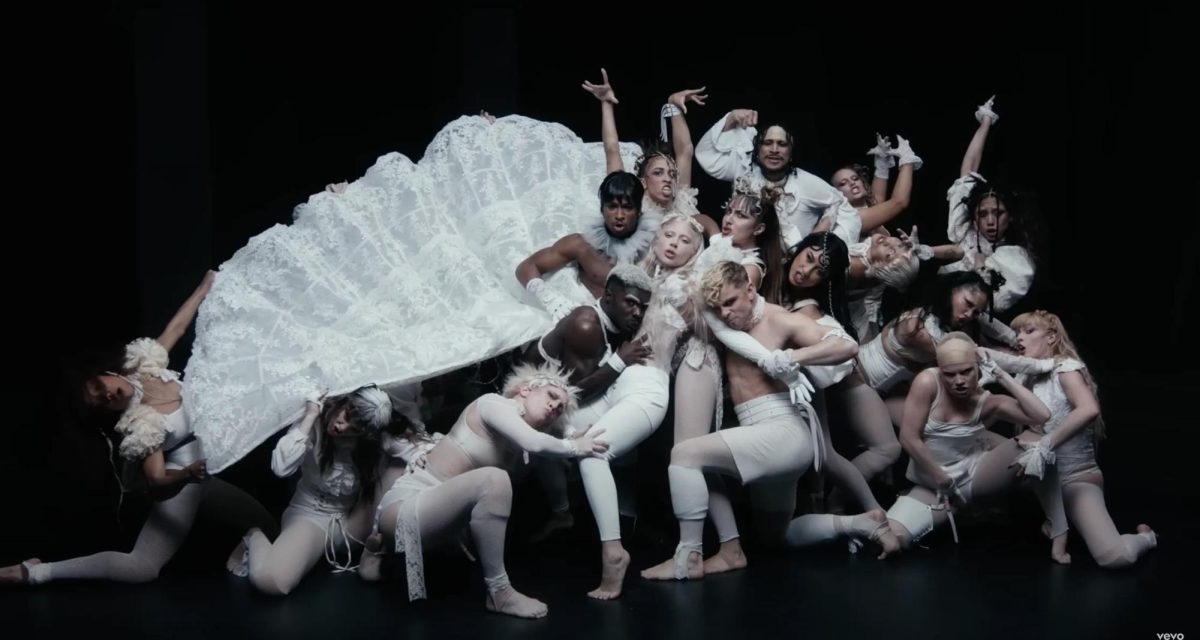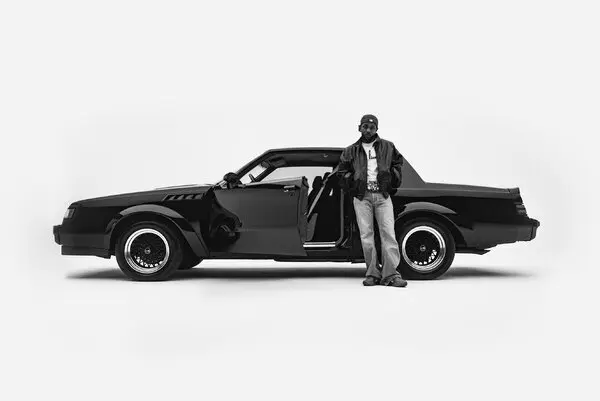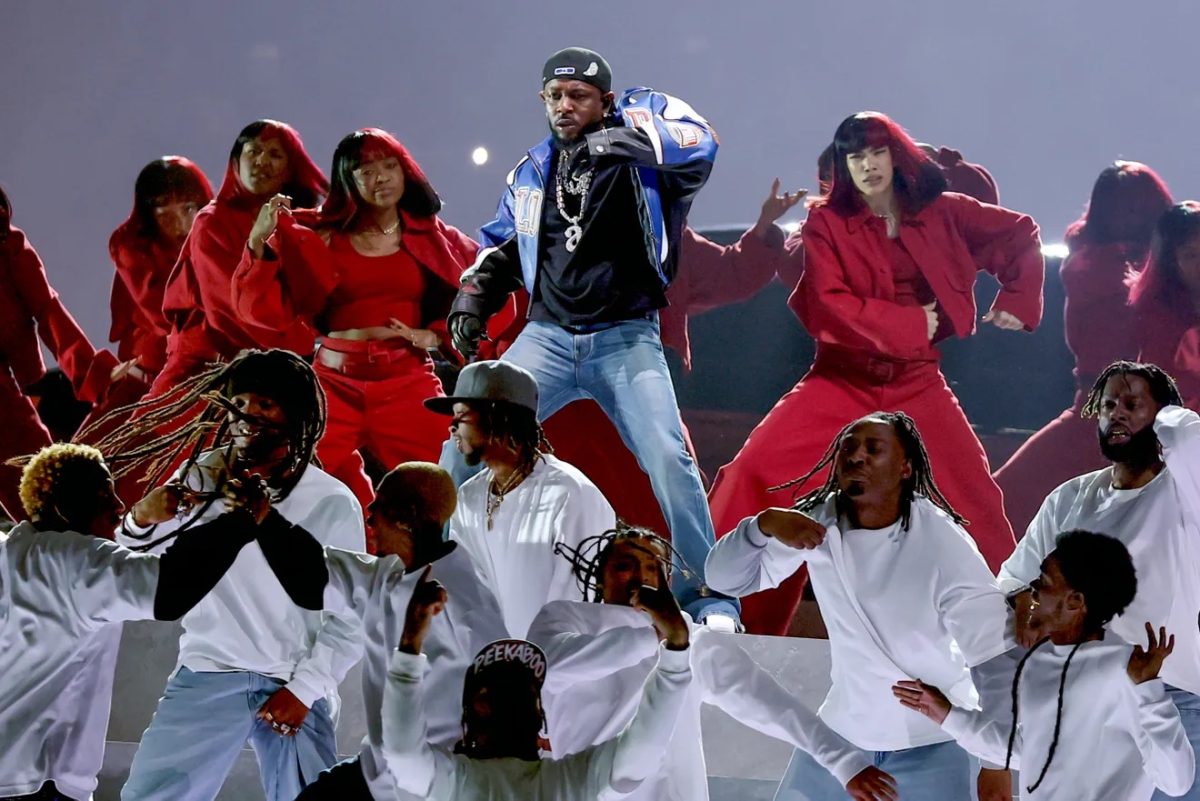On March 29, Beyoncé released her eighth studio album, Cowboy Carter, the second installment of what is set to become a trilogy. Beyoncé rides into her album cover on a white horse, her long white hair flying behind her. She wears head-to-toe American garb, from her unadorned cowboy hat to her red, white, and blue bodysuit. With one hand, Beyoncé clutches leather reins. With the other, she holds the American flag high. The most striking element of the cover is her unreadable expression: Beyoncé stares straight forward with high eyebrows as if issuing a challenge.
In fact, she may very well be issuing a challenge — one that urges the listener to reevaluate their whitewashed knowledge of America. The album is jampacked with 27 tracks that demand over an hour of attention from the devoted listener. Beyoncé uses her lyrics to venture along the trails of Southern American history, riding her horse through the states’ blistering heat. Many other artists join her down south — some well-recognized, such as Dolly Parton and Miley Cyrus, and others less-known, such as Tanner Adell and Tiera Kennedy. In doing so, Beyoncé situates herself in a long chain of current and future musical icons. She draws attention to the Black Americans often ignored in textbooks by recalling her personal history, America’s history, and religious history that extends back to Abraham.
Cowboy Carter emerged as a response to Beyoncé’s performance at the 2016 CMA Awards show, in which she faced harsh, conservative backlash, revealing the racism entrenched in the music industry. Beyoncé refers to this event in “AMERIICAN REQUIEM,” the album’s first song. She sings, “Used to say I spoke too country / And the rejection came, said I wasn’t country ’nough,” and then questions, “If that ain’t country, tell me what is?” The song uses anticipatory synth and repetitive lyrics to build tension, preparing listeners for the album’s unapologetic politicism. Beyoncé implicates the listener in the song by repeatedly asking, “Can you stand me?” The line almost acts as a warning: conservative America may not be ready for Beyoncé to assert herself in the musical world, but she will do it anyway. In the song’s conclusion, Beyoncé sings, “I am the one to cleanse me of my Father’s sins,” referring to America’s Founding Fathers. In this way, this song and the album are a requiem for our country founded upon white supremacy.
Cowboy Carter’s beauty shone through for me most clearly during the 11th track, “DAUGHTER.” This song sent me back to early mornings in 2016, when I blasted Beyoncé’s newly-released album Lemonade in my headphones on my way to school, wholly immersed in her unabashed lyrics. Beyoncé fully embraced vulnerability in Lemonade, and she does the same in “DAUGHTER,” which details her violent thoughts in the face of infidelity. She is the sole singer of the song, which leaves her voice hauntingly alone, flooded with desperation. Her voice is resonant and rich, and the Italian bridge blew me away. Although I could not understand the words, I was immediately transported. The words that I could understand deeply moved me. In the refrain, Beyoncé sings, “They keep sayin’ that I ain’t nothin’ like my father / But I’m the furthest thing from choir boys and altars / If you cross me, I’m just like my father.” This line may refer to Beyoncé’s immediate father and the cycle of abusive behaviors passed down in families. However, I thought of fatherhood more broadly, in terms of America’s Founding Fathers. The line left me wondering how to reconcile the beautiful diversity of America with its terrible history.
Beyoncé’s various genres, singers, and topics emphasized her role in the history of music. This coalescence was often effective, as it highlighted America’s diverse population. However, some covers, such as “BLACKBIIRD” and “JOLENE,” did not work well for me. I couldn’t help but compare them to their originals, which I preferred. Evaluating a cover by comparing it to its original may not be productive, but I would argue that such a comparison is unavoidable. Although Beyoncé most likely covered famous songs to draw upon Black American history and reframe them in our current political context, I thought that she had already done so with her original songs. I appreciate that she transformed the lyrics of “JOLENE” to make the song belong to her, yet I still would have preferred the album without the covers. They lengthened an already overflowing album, making it difficult for me to fully absorb all the successful elements of Cowboy Carter.
Although “BLACKBIIRD” and “JOLENE” left me a little disappointed, the rest of the album was beautifully executed and encouraged critical thinking. As soon as I finished listening, I immediately thought of the album in the context of other artists who have reclaimed the cowboy icon: Mitski’s album Be the Cowboy and the Fugees’ song “Cowboys” first came to mind. Throughout history, cowboys have been a symbol of America that is often portrayed to be white and male, a figure unrelatable for many Americans. Nowadays, artists can subvert this image. Beyoncé reclaims and reconstructs our image of America.














